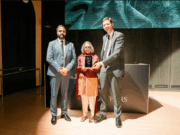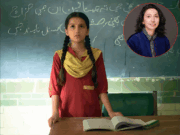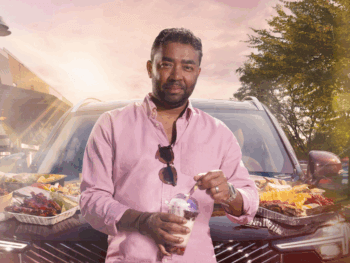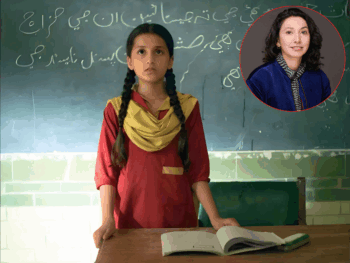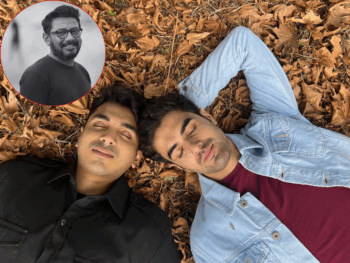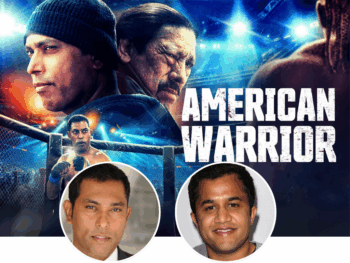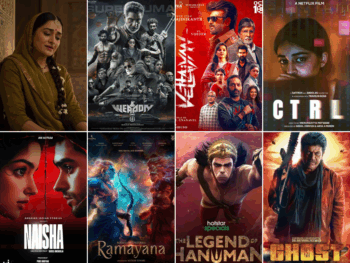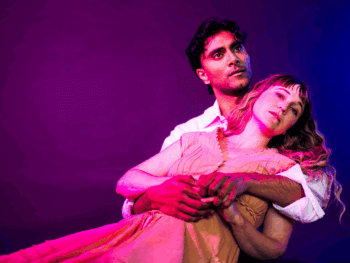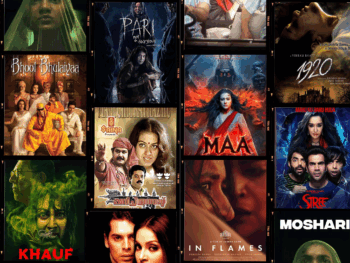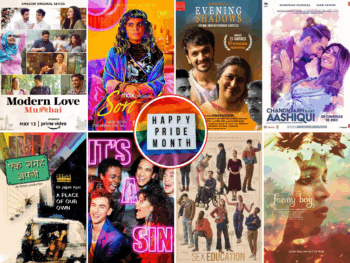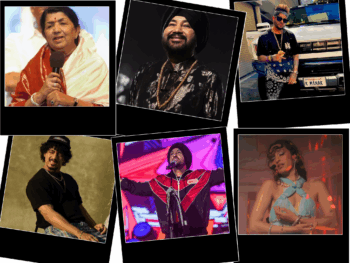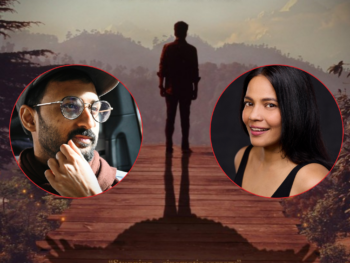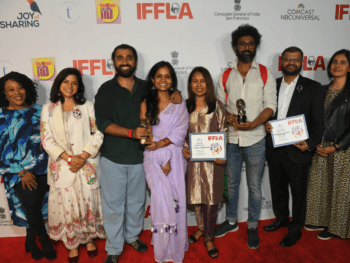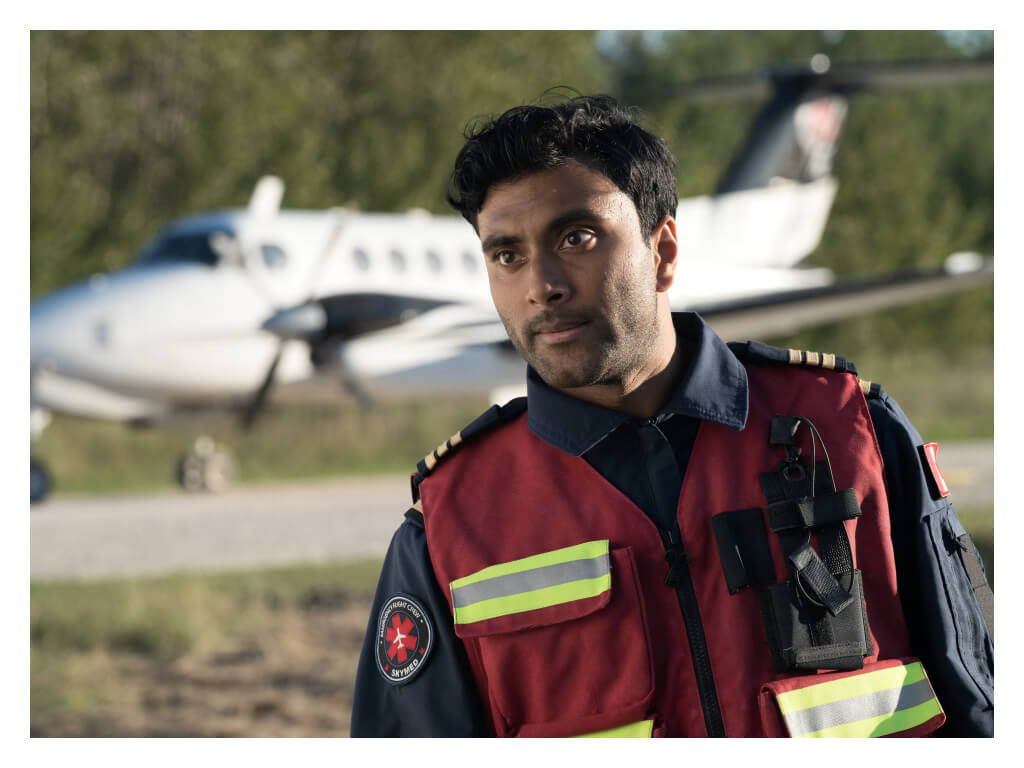
Praneet Akilla From Latest CBC Drama “Sky Med” Talks About Why This Medical Drama Is Next Level
Entertainment Jul 12, 2022
Rising Canadian star Praneet Akilla stars in SkyMed— a high-flying TV thriller that follows the pilots and nurses of a medevac (or air ambulance) unit operating in remote northern Manitoba, largely serving Indigenous communities. He plays quirky young pilot Jay “Chopper” Chopra. We chat with Praneet about what sets this particular medical drama apart from the rest in an always-crowded medical genre, the emotional traumas that drove these heroic characters to retreat from the world and head for the wilderness, and his time playing a Bobbsey Twin on The CW’s hit series, Nancy Drew, reinventing a beloved, iconic, traditionally white character.
This past Sunday night, Canadian audiences were introduced to a different sort of medical drama, one where the stakes are higher than usual — literally.
CBC’s SkyMed centres on a diverse group of pilots and nurses manning air ambulances in the expanses of northern Manitoba, flying to the rescue of stranded hunters and remote Indigenous communities, doing their life-saving work while cut off from the resources of the big city.
One of those pilots is quirky young First Officer Jay “Chopper” Chopra, played by Calgary native Praneet Akilla, who, before he was saving people from bear attacks, played Horseshoe Bay’s resident irresistible bad boy Gil Bobbsey on The CW’s Nancy Drew.
Recently, Akilla spoke with Anokhi Life about SkyMed, Nancy Drew and the power of representation.
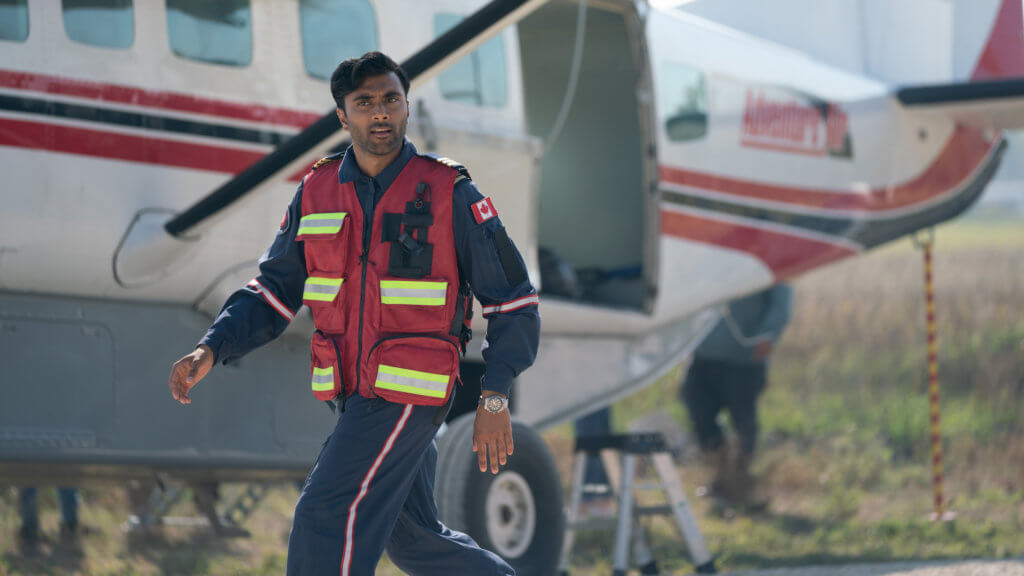
Matthew Currie: There’s a certain novelty, a certain freshness to this show, simply given the fact that we haven’t seen a lot of series set in this particular sector of the EMS world.
Praneet Akilla: The other reason why it might feel fresh too is because all of these other procedurals are set in big cities. Chicago, Miami, New York, Los Angeles. This is one procedural that’s set in remote northern Canada . . . It’s got the sort of procedural beats that a lot of these other shows have, but at the same time, it’s about a group of characters that are stranded from “civilization.” When you’re far north, you have to make do with what you have. Where I connected and what excited me about the material is that you’re sort of MacGyver-ing situations; you have to improvise and think quickly on your feet, and the technology you have isn’t necessarily the latest technology.
Matthew Currie: The show also digs into what would drive a pilot or a nurse to take up this post, far away from friends, family and “civilization.”
Praneet Akilla: Definitely. That’s the undercurrent, right? You’ve got the A story, which is the procedural aspect of it, the guest of the week. But the undercurrent, which is the story that hopefully will make the audience fall in love with the characters, is the notion of why do people choose to go there? And slowly, as the season goes on, we’ll unravel some of those mysteries . . . There’s a variety of reasons, but I think certainly for each character, they’re all there because of some sort of emotional trauma they’ve suffered.
Matthew Currie: Was there one element of Chopper that really excited you, on the page?
Praneet Akilla: He seemed very much like everybody’s little brother. He was the dude that was always going to be available to help anybody, goes out of his way to think about others. He’s a bit of a geek, he wears his heart on his sleeve, he’s terrible with women. He’s got that charming, quirky sort of quality. And we’ve seen these characters before, so automatically for me, I had good templates to work off of. But the one thing that was interesting getting to set and working and doing a few scenes, and the showrunner [Nurses and Transplant alum Julie Puckrin] telling me: “Chopper, he’s awkward and he’s got these little quirks and stuff, but keep in mind that he’s actually a badass. Even though he’s not in the captain’s seat, he is the most competent pilot in the entire group.” Not only is he a pilot, he’s a fully trained engineer. He’s incredibly smart, incredibly competent. He actually is much more competent with women than you’d think; as we’ll find out, he just doesn’t maybe want to open his heart up right away. So, there were slightly differing ideas to who Chopper was, and then it was about bridging those two things together.
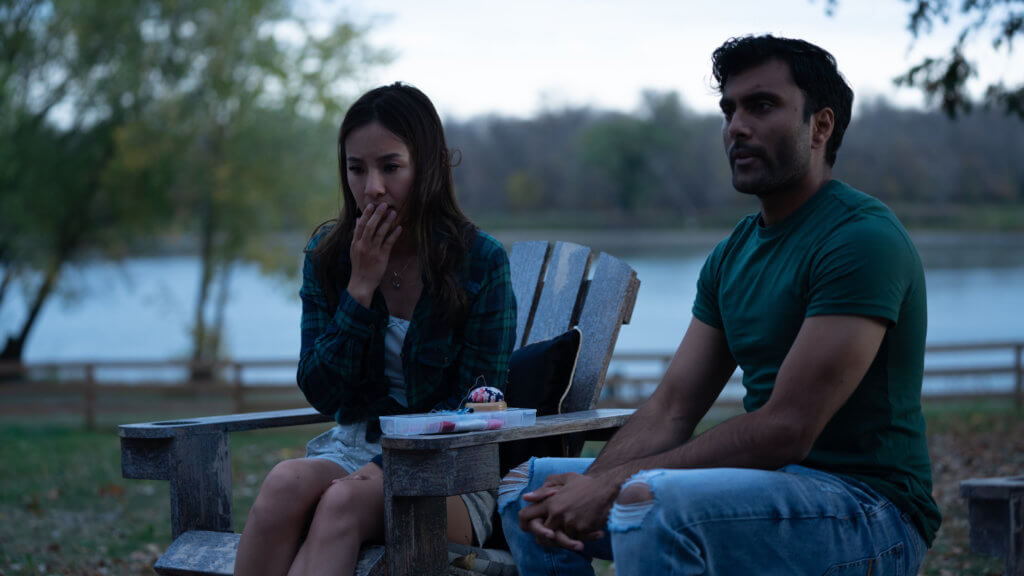
Matthew Currie: The show has been picked up by streaming service Paramount+ in the U.S. Was it strange working on a such distinctly Canadian show that’s going to be consumed by an international audience as well?
Praneet Akilla: That was a question that I asked myself constantly on set. Because I’m so often told [in other projects], “Take out your Canadian accent. Tone that down.” That was a question I’d always ask myself, and even the creators, like, “Are you sure we can do this, and the U.S. wants this?” And the answer is, “Yeah.” Shows like Schitt’s Creek and Kim’s Convenience, granted they’re comedies, but what they have done is opened up a world where Netflix or Paramount+ or these other countries import Canadian shows. If there’s one thing that the U.S. audience likes, it’s something they haven’t seen before . . . What’s been happening at least since 2016-ish is that Canadian content has been becoming more popular in the U.S., because people want to see the Korean-Canadian community owning a convenience store, they want to see a small town in Canada, they want to see pilots and nurses up in Manitoba, because it’s something different than what they’re used to.
Matthew Currie: One of your other recent jobs was on The CW’s Nancy Drew, reinventing a very iconic character. What was it like being a Bobbsey Twin?
Praneet Akilla: What was cool is that it was a character that my grandma knew. They’re from the ’50s, and so my grandma knows the Bobbsey Twins more than I do. That’s cool. You never get your mom and grandma knowing an I.P. more than you do. That was really fascinating to me. And her being able to see her grandson inhabit what would have been a white person role, kissing Nancy Drew, on her TV screen . . . Ultimately what I’m most proud of is that the creators took risks and chances to ensure that the Bobbsey Twins were different; they didn’t have to be the same-old, same-old. And also making them darker, giving them more depth. The Bobbsey Twins in the books are very different from the way we [Akilla and co-star Aadila Dosani] played them. And then also just making a South Asian character the main love interest, at least for a certain point in time, on that show. That’s also a rarity. I was gonna do season three of the show, then SkyMed happened, so Gil Bobbsey never made an appearance in season three. Hopefully, as Nancy Drew keeps going, I’ll be able to find time in my schedule to pop back in.
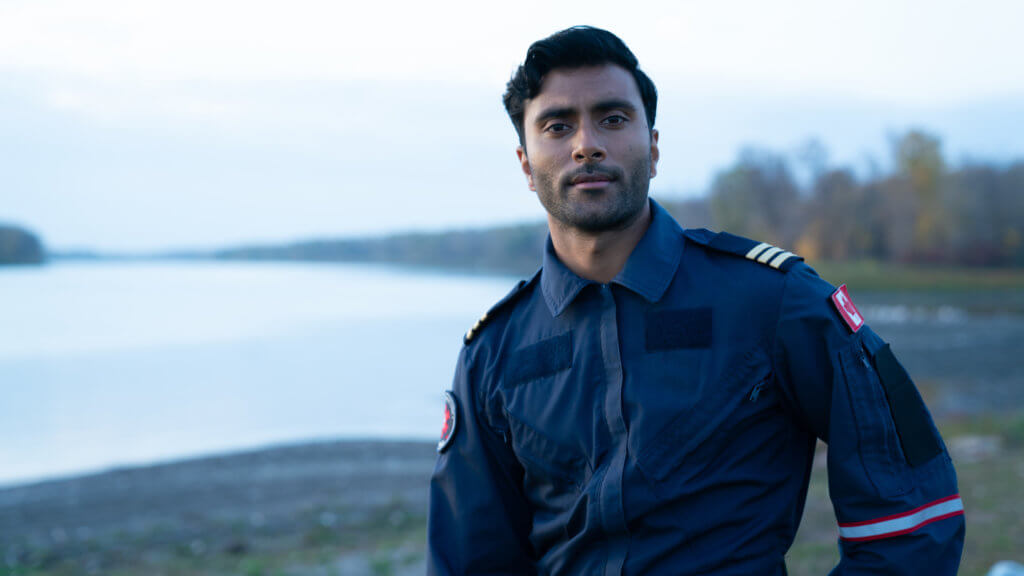
Matthew Currie: On that note, what does it mean to you to get to play a role like Gil, which not so long ago, would’ve gone to a white actor almost by rote?
Praneet Akilla: It means the world. I have a weird, unique problem. Because unlike a lot of my peers who are South Asian or Black or in the BIPOC community, all the characters that I’ve played were open-ethnicity [castings]. Chopper is the first role that I’m playing [someone who] was written as an Indian character. Prior to this, the characters didn’t have to be Indian at all; I just happened to get the role. I actually get to be myself for the first time in this show, which is an honour in itself.
But I would say, we’re in this weird space, right? Because there’s a fine line between artificially injecting diversity for the sake of diversity, and then there’s that thing of, “OK, when does it become organic?” When does it become natural, where it doesn’t feel like we’re shoehorning it for grant money or shoehorning it because of optics? I see a lot of that happening, unfortunately still. Telltale sign: you know when it’s injected if it’s one of the lead roles, but then you notice the writing’s off; you notice that the character isn’t well-developed, and you notice that the character is doing the same old stereotypes, which goes to show that the writers and the showrunner, they just put a brown dude in there for the optics. Obviously, SkyMed was the opposite of that. They created a three-dimensional storyline, and none of Chopper’s storyline has anything to do with him being Indian. He just happens to be an Indian dude. There is no arranged marriage storyline, there is no “his dad owns a convenience store,” there’s none of that stuff. He’s just being a person.
Matthew Currie: Oftentimes, a character’s ethnicity or gender or sexuality becomes their defining character trait, but there’s a power in having it not matter so much.
Praneet Akilla: It’s about normalizing it, right? There is an avenue to tell stories about our traumas — those immigrant stories, those refugee stories. There’s an avenue to tell those stories. But then there also should be space made where we just get to be people, like we are in real life. I think that’s more important at this stage right now, to normalize it so that it becomes organic. Unfortunately, I think it’s going to be a generational thing, I don’t think it’s going to change overnight. I think what’ll have to happen is the old guard will have to die out and new people in positions of power will have to keep that change and the momentum going forward. That’s the only way we’ll make progress. For now, I think you have to, in a sense, artificially inject some diversity. You have to change certain roles on purpose to people of colour, because that’s how you’re going to correct that situation. Because if you do it now artificially, over time, a practiced habit becomes organic. So, as much as I’m not a fan of that, I do support it because, at the end of the day, that’s how we’re going to get stuff moving in the right direction . . . but if you’re going to do that, great. But then also make sure that those characters are well written.
Look for new episodes of SkyMed Sunday nights at 9 p.m. on CBC.
Main Image Photo Credit: CBC
Matthew Currie
Author
A long-standing entertainment journalist, Currie is a graduate of the Professional Writing program at Toronto’s York University. He has spent the past number of years working as a freelancer for ANOKHI and for diverse publications such as Sharp, TV Week, CAA’s Westworld and BC Business. Currie ...








